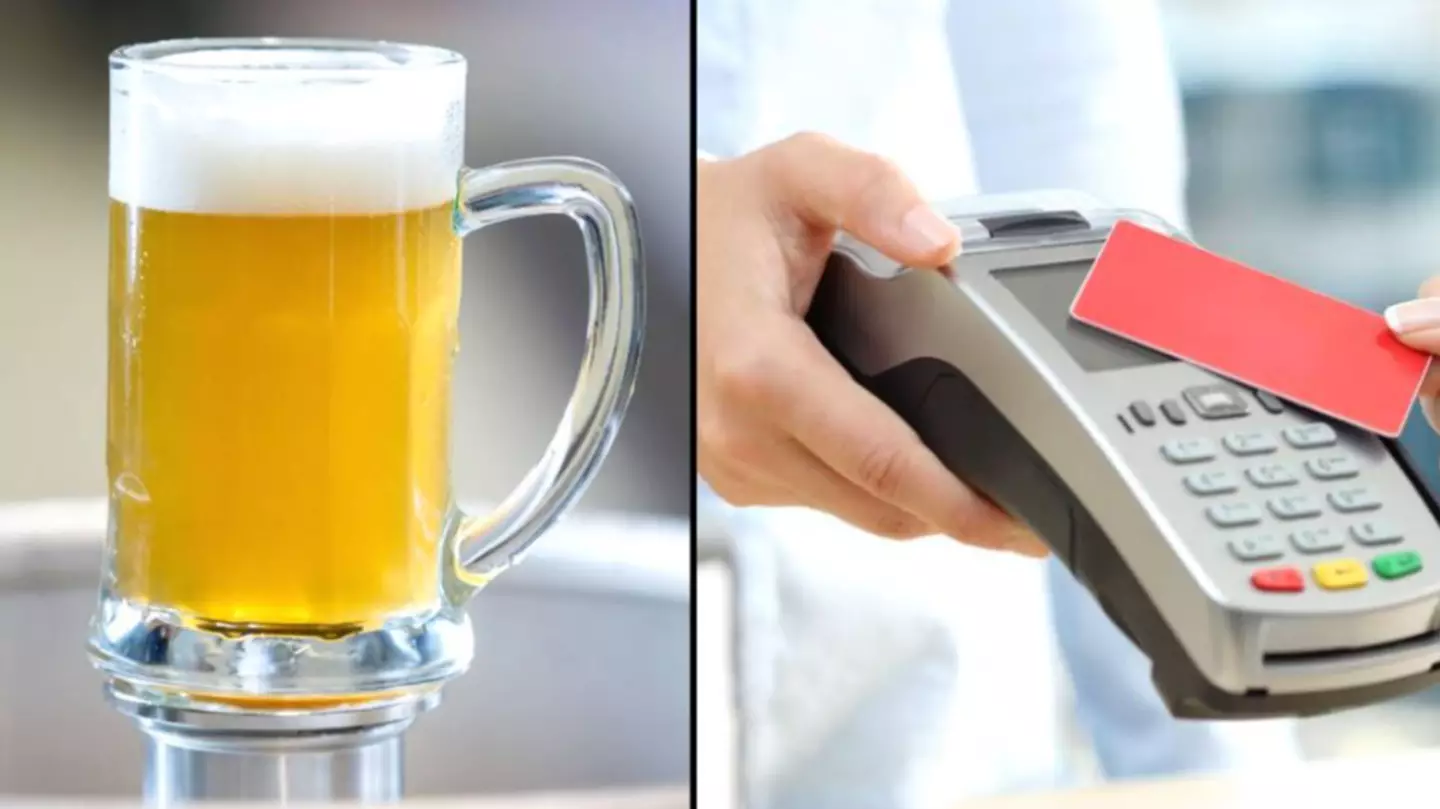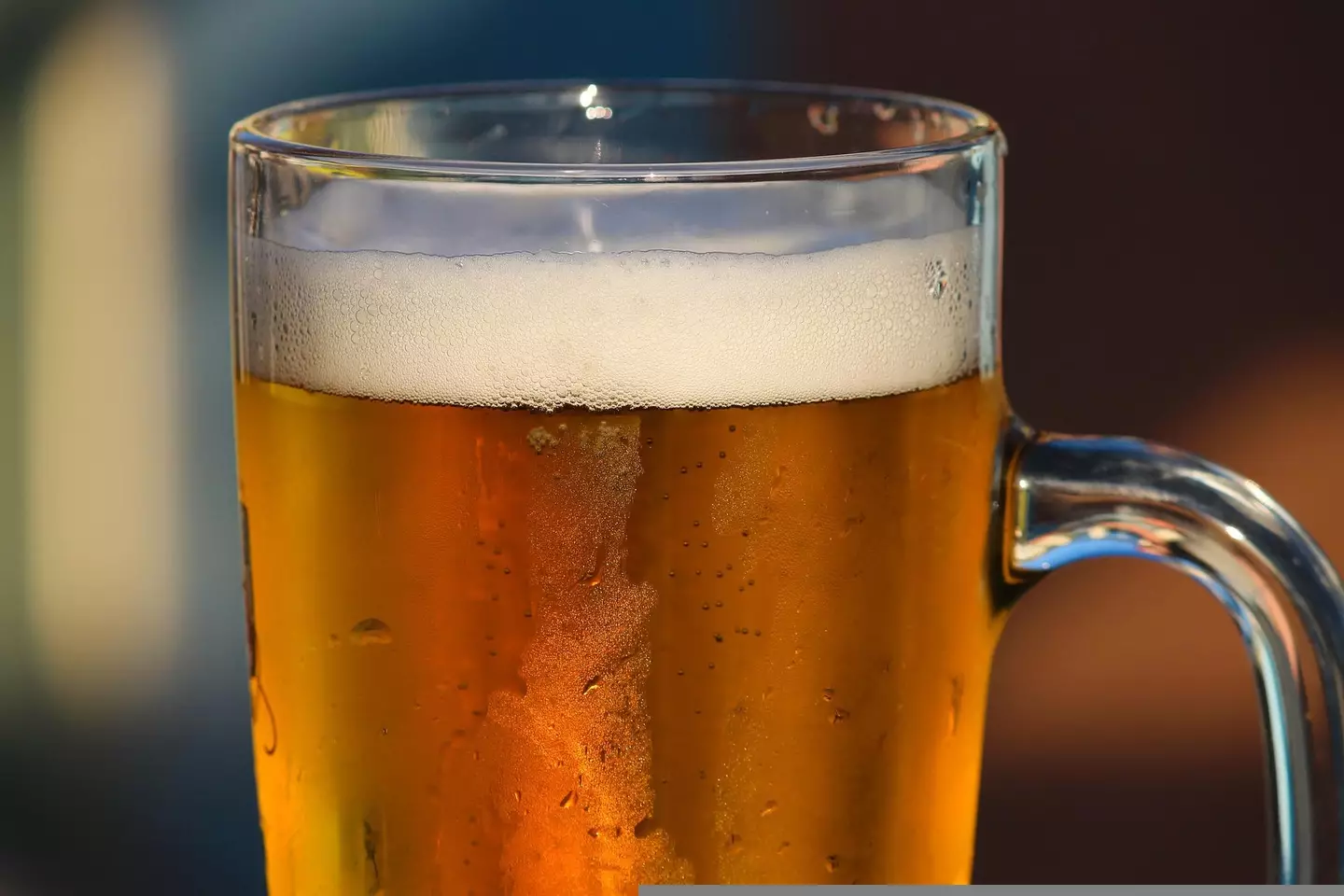
The UK's most expensive pint just got even more pricey, as the cost of beer continues to rise.
There's nothing quite as satisfying as that first sip of a crisp drink in the pub after a long day, but seeing the money come out of your bank account in ever-increasing amounts does admittedly put a bit of a dampener on things.
New research from industry tracker CGA reveals exactly how much the price of your favourite pint has changed over the years by comparing the average cost today to the 2008 financial crash.

Advert
Fourteen years ago, settling down at a table with a pint would set you back an average of £2.30. According to a survey of more than 5,550 random bars and pubs, CGA found the average cost has now increased by more than £1.50 to £3.95.
It's a big increase for for any food product, especially one bought frequently, but the current average price is still way below the cost of the UK's most expensive pint, which researchers discovered to be £8.06.
I'm sure you won't be surprised to hear that particular costly drink can be found in London – there is a reason the wage there is higher, after all.
If you're after a cheaper drink, Lancashire is apparently the place to be as researchers found pints in the county only cost £1.79.
Beer is far from the only food product to have seen an increase in cost recently, and Clive Watson, chairman of City Pub Group, which operates 41 pubs in London and the south of England, explained it's down to the cost of ingredients increasing by 10 percent.
Per The Times, Watson said: “Wage inflation is probably seven per cent and electricity inflation is 100 percent, so that blended cost price probably puts the price of a pint of beer up 12 to 13 percent."
Advert
Pub retailers have said they were trying not to charge more for pints 'because we are fighting for covers and guests', though increases are inevitable to ensure owners can continue to buy the stock.
Jonathan Jones, CGA’s managing director in UK and Ireland, previously suggested the ongoing Platinum Jubilee celebrations taking place this weekend (2-5 June) 'could help to kickstart the summer', however more generally the cost of living crisis 'continues to cast a shadow over consumer spending'.
Last month, the tracker revealed that restaurants, pubs and bars are experiencing a comeback following the coronavirus pandemic as nine out of ten British cities fecorded higher sales over the four-week period ending 7 May than in the same period in 2019.
Topics: UK News, Money, Food And Drink